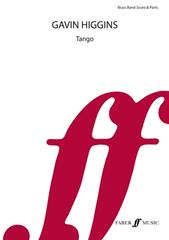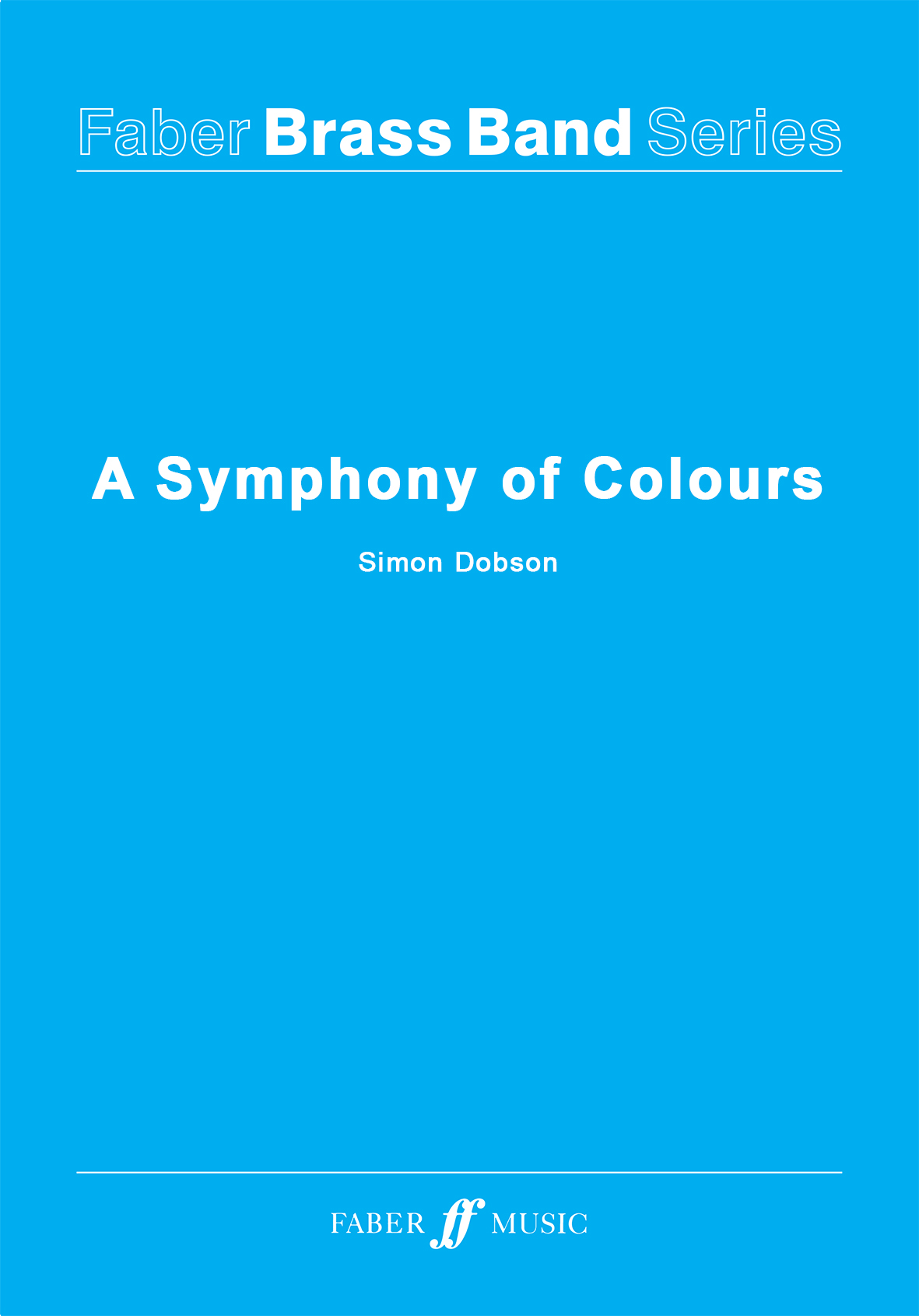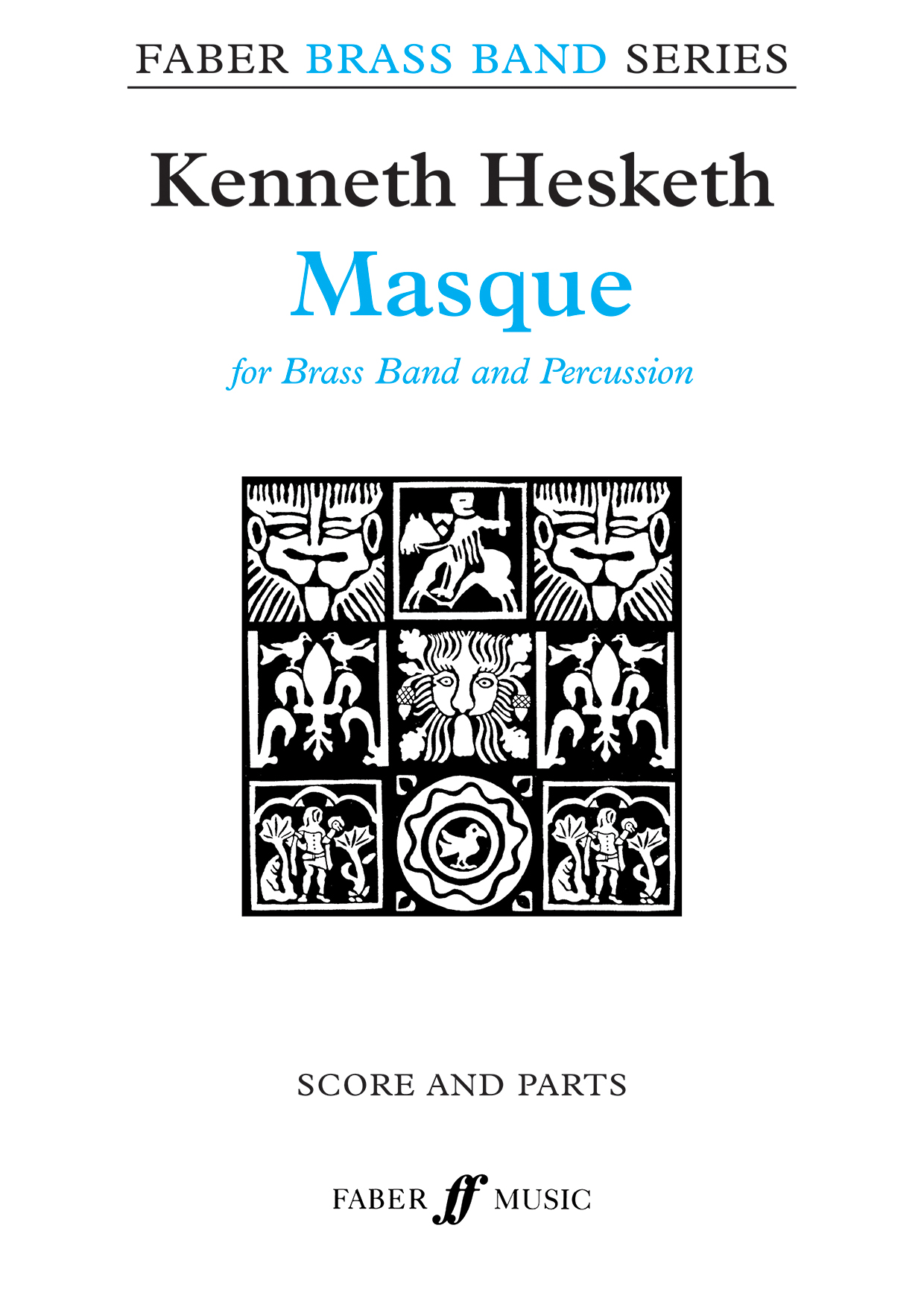Results
-
£65.00
Tango (Score & Parts) - Gavin Higgins
Tango for Trumpet and Trombone solos with Brass Band accompaniment was written for Ian Porthouse and Brett Baker in 2008. The first performance was given by the Black Dyke Band conducted by Nicholas Childs, at the Black Dyke Brass Arts Festival.Brass Band Grade 5: 1st SectionDuration: 9 minutes
In Stock: Estimated dispatch 1-3 working days
-
£86.00
The Promised Land (Bra) - Max Stannard
The Promised Land was written in response to a request by Jonathan Parton to create a piece for Lancaster University Brass Band which would allow the band to show off a range of soloists. The piece was recorded by County Brass a Lancaster. There are solos for Flugel Horn, Tenor Horn, Trombone, Euphonium, E flat Bass and Solo Cornet. The piece then builds to a rousing conclusion involving the full band. The melody which inspired this piece is an American folk song called, I'm Bound for the Promised Land.
Estimated dispatch 7-14 working days
-
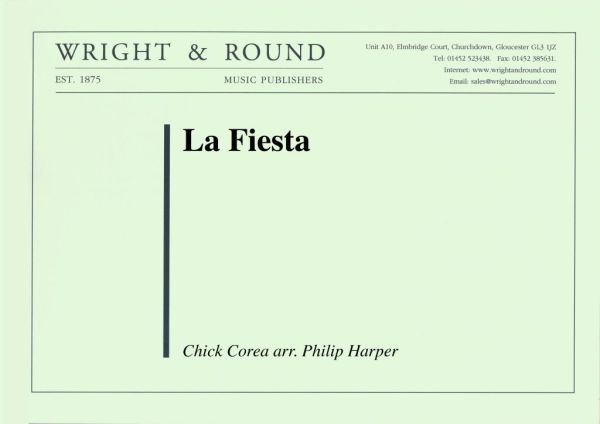 £40.00
£40.00La Fiesta (Score and Parts)
Chick Corea is an American pianist and composer of Sicilian and Spanish descent, whose long career in jazz music continues to this day. A member of Miles Davis's band in the 1960s, he formed his own band Return to Forever in the 1970s before establishing himself as one of the greats of modern jazz.La Fiesta was composed in 1972 and included on Return to Forever's debut album. The music is in one-in-a-bar waltz time and switches between Latin carnival-style and jazz waltz, with stand-up solos for cornet, baritone and tenor horn. This arrangement was performed as part of the Cory Band's winning Brass in Concertprogramme in 2012.
Estimated dispatch 7-14 working days
-
£83.00
A Bournemouth Suite - Benjamin Tubb
Bournemouth Suite was written by Benjamin Tubb in 2005, when the composer was just 17 years of age. After spending many school holiday weeks with his grandparents in the coastal town of Bournmouth, it was obvious that these experiences would make a great basis for a composition.This testpiece is split into three separate movements: Balloon Ride, The Pier at Night and The BIC. Each movement has its own unique character, although there are ideas shared by all three throughout, one of which is the opening syncopation.Balloon RideThe First movement, Balloon Ride, describes a journey on "The Bournemouth Eye", a tethered hot air balloon that takes you up 500 feet. It's located in the middle of the town centre, which enables you to see surrounding countryside for up to 20 miles! The movement begins rather ominously as the balloon raises from the ground which leads into a more lively section caharacteresed by the repeating quavers in the lower brass and woodblock. The movement ends in much the same way as it started - signalling the return to terra firma.The Pier At NightDuring the summer there are several large firework displays in the town centre. The second movement, The Pier At Night descirbes an evening spent on the beach in deckchairs watching the montage of colours in the night-time sky. With demanding solos for horn and cornet, as well as exposed playing spread throughout the band, this slow movement will really test a band's expressive and lyrical playing.The 'BIC'The Bournemouth INternational Centre, also known as "The BIC" is one of Bournemouth's most visited attractions, and regularly hosts shows such as 'Riverdance' and pantomimes. Inside is a world of entertainment and the centre itself is just a stone's throw from both "The Bournemouth Eye" and the Pier. The 3rd movement has been written to describe the buzz of activity surrounding the BIC, and the entire works ends with the same syncopated motif from the beginning.A Bournemouth Suite was set as the 'set-test' at the Pontins Brass Band Championships 2009.
Estimated dispatch 7-14 working days
-
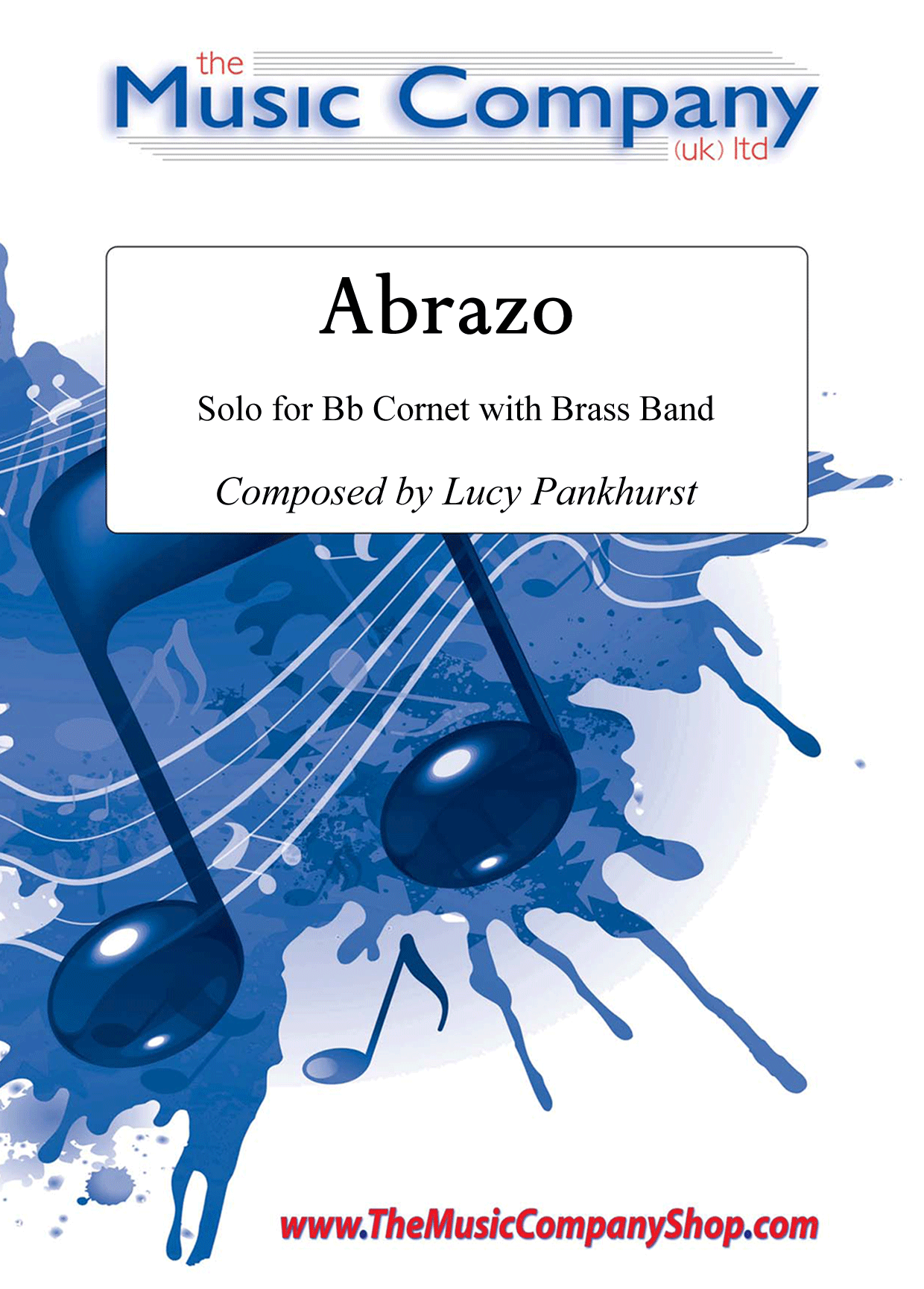 £30.00
£30.00Abrazo - Lucy Pankhurst
Lucy Pankhurst wrote this piece in response to an open request from Jim Hayes, when he asked for new solos to perform. Abrazo was then selected to feature on his solo CD Dial M for Midnight.The title Abrazo translates as 'embrace', but is also the term given to the dancing frame of the Tango; where the partners change stance by pulling and pushing the frame, yet always remaining in physical contact with each other. This technique is suggested in the music by the soloist breaking away from the band with virtuoso interjections, before being 'embraced' again by the full band.When the cornet soloist eventually breaks completely free in the cadenza passage, the music becomes much more agitated and moves away from the original Tango, transforming briefly into a Flamenco to finish with a flourish.
In Stock: Estimated dispatch 3-5 working days
-
£95.00
A Symphony Of Colours - Simon Dobson
A Symphony Of Colours contains four movements, which merge seamlessly together; Joy; Chroma (a journey through the composer's perception of synesthesia); Endless Time (where tuned percussion features alongside extended solos for the euphonium); and the final, climactic Ascent. This virtuoso score won a BASCA British Composer Award in the Brass & Wind Band category for its composer, Simon Dobson.Brass Band Grade 6: Championship.Duration: 17 Minutes.Large format scores are available on request.
In Stock: Estimated dispatch 1-3 working days
-
£55.00
Masque - Kenneth Hesketh
Masque has been transcribed for brass band from Hesketh's Scherzo for Orchestra, commissioned by the National Children's Orchestra in 1987. The main theme is bravura and is often present, in the background. The form of the piece is a simple scherzo-trio-scherzo, and has colourful scoring (solos alternating with full bodied tuttis) with a dash of wildness!Brass Band Grade 5: 1st SectionDuration: 6 minutes.
In Stock: Estimated dispatch 1-3 working days
-
 £74.95
£74.95DAY OF THE DRAGON - Peter Graham
Additional Score: 29.95The latest in a series of "world music" features by Peter Graham (including Cry of the Celts, Windows of theWorld and Call of the Cossacks), Day of the Dragon is a joint commission fromthe Buy as You View Band and the National Youth Brass Band of Wales. The fivemovements are based on traditional Welsh Folk Songs and feature solos forcornet, trombone, horn, flugel, euphonium : 1) Overture (Ar lan y mor,Hunting the Hare) 2) Lullaby (Suo Gan) 3) Welsh ClogDance 4) Ballad (By Kell's Waters) 5) Triumph(Men of Harlech)
Estimated dispatch 3-7 working days
-
 £89.95
£89.95Songs of Ascent - Jonathan Bates
DURATION: 14 minutes. DIFFICULTY: Championship. 'Songs of Ascent' was composed for the Royal Northern College of Music Brass Band, as part of their programme for the 2019 RNCM Festival of Brass. In my view, the festival itself is the leading showcase for original contemporary music for the medium (in a concert setting) in the world and therefore an ideal place to explore new ideas and sounds, which was a notion fundamental to the construction of this work. The piece is subtitled 'Out of the Depths, I cry to you, O Lord'; the opening line of Psalm 130 (which forms part of a set of 15 psalsm, 120-134 known as the Songs of Ascent") which forms the main inspiration for much of the musical material. Following an extended opening for four individual tuba lines, there are a number of solos for members of the band off stage, with bleak and deep accompaniment lines, reflecting the words of Psalm 130. Amongst these 'songs of ascents', the most common and strong themes are repentance and redemption; with the central core of this work emerging 'from the depths' to reveal one of very few calming and reflective passages of the work utilising the tune of 'Guide Me O Thy Great Redeemer' in a new setting, featuring the Solo Horn and Bass Trombone, before returning to the ethereal and dark timbres that form much of the music up to this point. In terms of compositional technique, this work is solely based on a set of 4 9-note scales in their various unique transpositions (below). Each of these scales provide a set of 2 whole tone scales, 6 minor triads, 6 major triads and is built on 9 augmented triads. Whilst most of the music in this work is based melodically on the set of notes (heard right at the outset in the motif in the tuba line), the central section delves into the harmonic capabilities of these 'modes', using a number of the 7 'keys' which can be derived from the minor & major chords derived in each scale. All 4 scales are used independantly to each other, with whole sections of the work focussing on each mode. 'Songs of Ascent' was selected as the set work for the Championship Section at the Butlin's Mineworker's Championships in 2020.
In Stock: Estimated dispatch 1-3 working days
-
£87.00
Stormseye (Bra) - Stijn Aertgeerts
With 'Stormseye', the composer describes the passing of a storm. The calm joyful opening by the cornets reflects the open blue sky. The weather very quickly turns as the music clearly becomes more and more chaotic. The storm gains momentum and the band also becomes more and more tempestuous. The solos in the flugelhorn, cornet and euphonium, among others, reflect a moment of tranquillity, with a growing anxiety about what is to come. The quietness of the eye of the storm before all hell breaks loose again. The music then builds to a grand finale that combines the opening theme with the storm's thematic material. The storm is overcome and the sky clears completely! 'Stormseye' was written as a test piece for the B division of the 'Flemish Open Brass Band Championship' 2024 in Mechelen (B).
Estimated dispatch 7-14 working days

